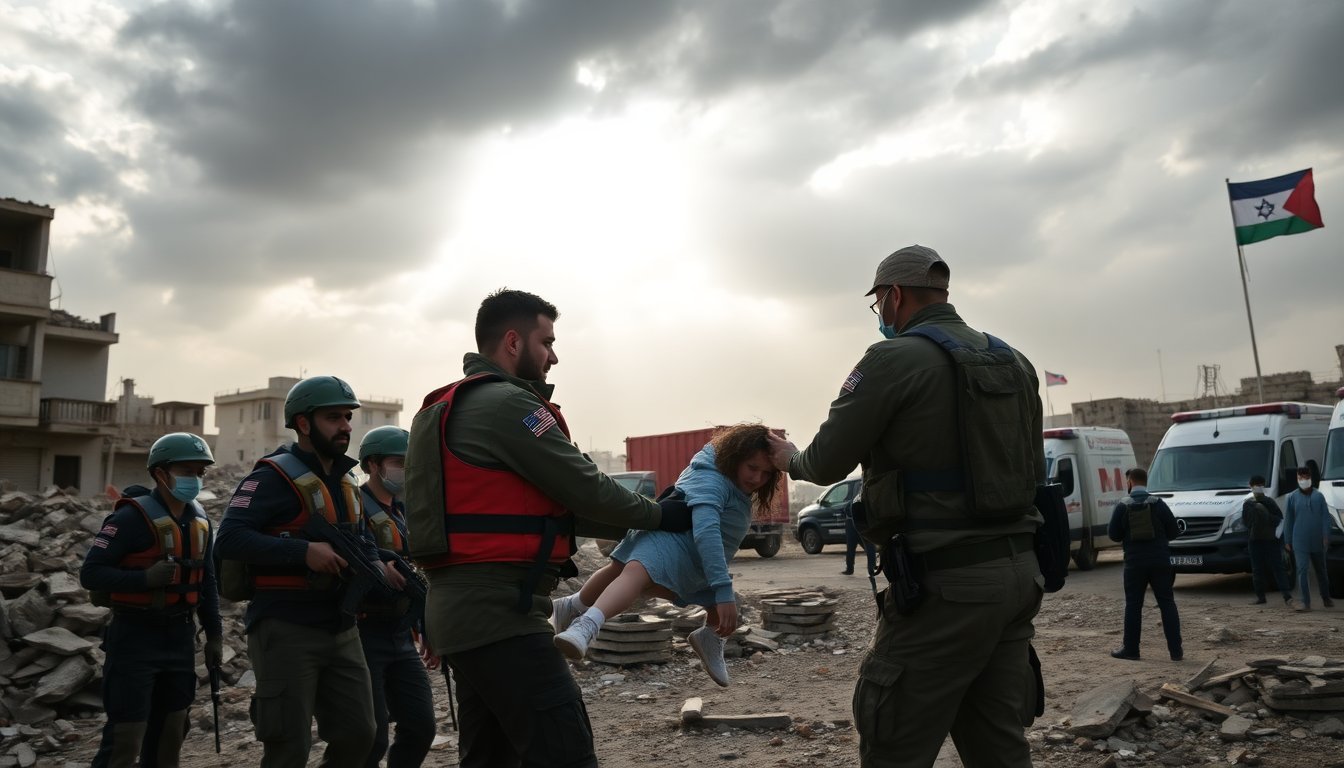Table of Contents
In a significant act of diplomatic collaboration, the Trump administration facilitated the rescue of a woman trapped in Gaza, a region experiencing persistent conflict. This operation was not an isolated incident but stemmed from extensive planning and cooperation among the United States, Israel, and Jordan. Her rescue highlights the importance of international partnerships during critical situations.
The facts
The extraction of individuals from conflict zones poses substantial challenges. Political tensions, security threats, and logistical issues complicate these operations. Recently, the mother of a U.S. sailor was trapped in Gaza, a region known for its instability and ongoing hostilities. The situation underscores the complex negotiations involving multiple governments, illustrating the fragile state of international relations.
The consequences
These operations can have significant implications for those involved. The safety of civilians remains a priority amid negotiations. The involvement of various governments reflects the intricate nature of diplomacy in crisis situations. Officials are working to ensure that all efforts prioritize human safety while navigating the political landscape.
The facts
The U.S. government facilitated the safe passage of a woman through high-level discussions with Israeli and Jordanian officials. This multinational collaboration was essential in securing a safe route and obtaining the necessary permissions in a politically sensitive environment. Jordan, which shares a border with Gaza, played a crucial role by providing a safe haven for the extraction.
Coordination among these nations highlights how effective diplomacy can support humanitarian efforts. The U.S. State Department emphasized the urgency of the situation, advocating for a swift response to safeguard the woman’s life.
The facts
The rescue operation faced numerous challenges amid the volatile security situation in Gaza. Each step required precise timing and careful execution to minimize risks to the mission and the woman’s safety.
Role of intelligence and security measures
Intelligence gathering played a vital role in the mission’s success. U.S. and Israeli agencies collaborated to monitor ground conditions, assess threats, and identify safe routes. Their teamwork was crucial for the extraction team’s effectiveness.
The operation’s secrecy was paramount to safeguard both the woman and the rescuers. Maintaining operational security is essential in international rescue missions, where leaks could have dire consequences.
The facts
The successful extraction of a woman in a conflict zone represents a notable achievement for U.S. diplomacy. According to official sources, this operation has reinforced alliances among the nations involved. It underscores the potential for international cooperation in addressing humanitarian crises during times of political turmoil. Such a successful operation can establish a framework for future rescue missions where collaboration is crucial.
The consequences
This incident emphasizes the ongoing obligations that governments have toward their citizens, particularly in conflict areas. It serves as a stark reminder of the extreme measures that nations will undertake to ensure the safety of their nationals abroad. Police confirm that these actions reflect a commitment to protect citizens, highlighting the importance of international solidarity in crisis situations.
The woman’s rescue highlights the effectiveness of diplomatic initiatives and the critical role of global cooperation during crises. It demonstrates how nations can navigate complex situations through strategic alliances and a shared commitment to humanitarian principles.
The facts
The coordinated efforts of the U.S., Israel, and Jordan in this rescue operation not only saved a life but also emphasized the importance of international solidarity. This incident underscores the capacity of countries to collaborate in addressing challenges that cross national borders.
The consequences
As the world faces ongoing conflicts and humanitarian issues, this successful operation serves as a beacon of hope for future diplomatic efforts. It reinforces the message that cooperation can lead to positive outcomes in difficult circumstances.


